Los Angeles is not a glamorous place.
Nor is New York or Las Vegas a glitzy, party-lover's paradise.
In all the "must-see" tourist destinations in the United States, none are going to be purely eye-dazzling or spectacular, but rather always following a history and community silenced by popular media consumption... A rather prominent example of this is in New Orleans, Louisiana.
During my spring break, I had the opportunity to travel to New Orleans with eleven open-minded and proactive schoolmates. We were volunteers under the "Alternative Breaks" program, which sent out groups of students to areas facing a certain community condition, such as rural poverty, human trafficking, and food insecurity. In New Orleans, we were focused on "community rebuilding" after Hurricane Katrina. When I'd mention our purpose to friends and family, I would receive blank stares, followed by "Wasn't Katrina 14 years ago? What is there to do right now?" After a week of painting houses, installing fixtures, tending to gardens, and playing with kennel-bound dogs, there is still so much the community has to go through after a natural disaster. When visiting a rather large city, you should always be critical as to who, what, where and why somethings exist and others persist.
1. Visit a local museum and do some research.
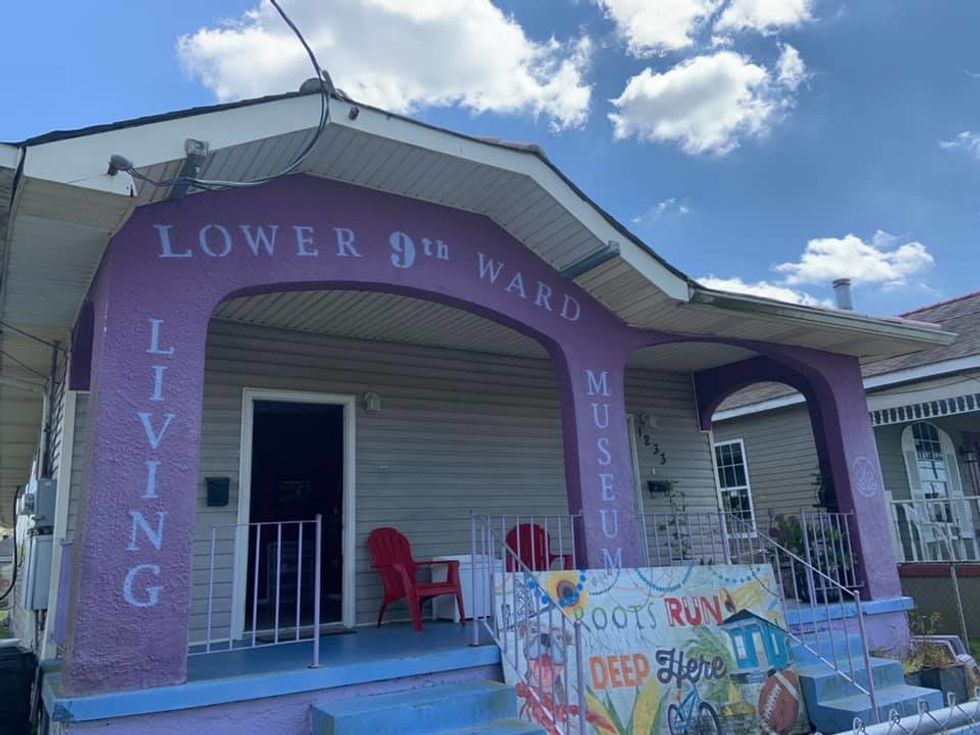
Lower 9th War
Ashley Lanuza
We started our trip at the Lower Ninth Ward Living Museum, a small gallery narrating the past, present, and future of the "Lower Ninth Ward," a region of New Orleans struck by poverty, racial injustice, and the most damage from Katrina. The gallery discussed the hurricane, the role of levees that broke and flooded under-resourced areas, and the delayed and poor response to Katrina and the levee by officials in the federal, state, and city level. The trip was crucial in giving context to the two worlds we were stepping in: the world of notorious partying and drinking and the world of community and activism. As we walked around the French Quarter, for instance, where people drank like there was no tomorrow and there were endless streets full of clubs and bars, it struck me that these popular areas didn't face tremendous flooding during Katrina. It survived, however, at the expense of the Lower Ninth Ward, when authorities chose saving property over people.
Visiting a local museum gives context to the community in the area. Be critical of how some places are more resourced and well-allocated than others, and why that is. It gives a lot of magnitude to the places, especially the touristy ones, you plan on visiting. Whether that is a sense of appreciation or anger at why some decisions are made at the expense of human lives, providing context to the spaces you're entering intensifies and navigates your purpose for being there.
2. Ditch the rental car and hop on the street cars.
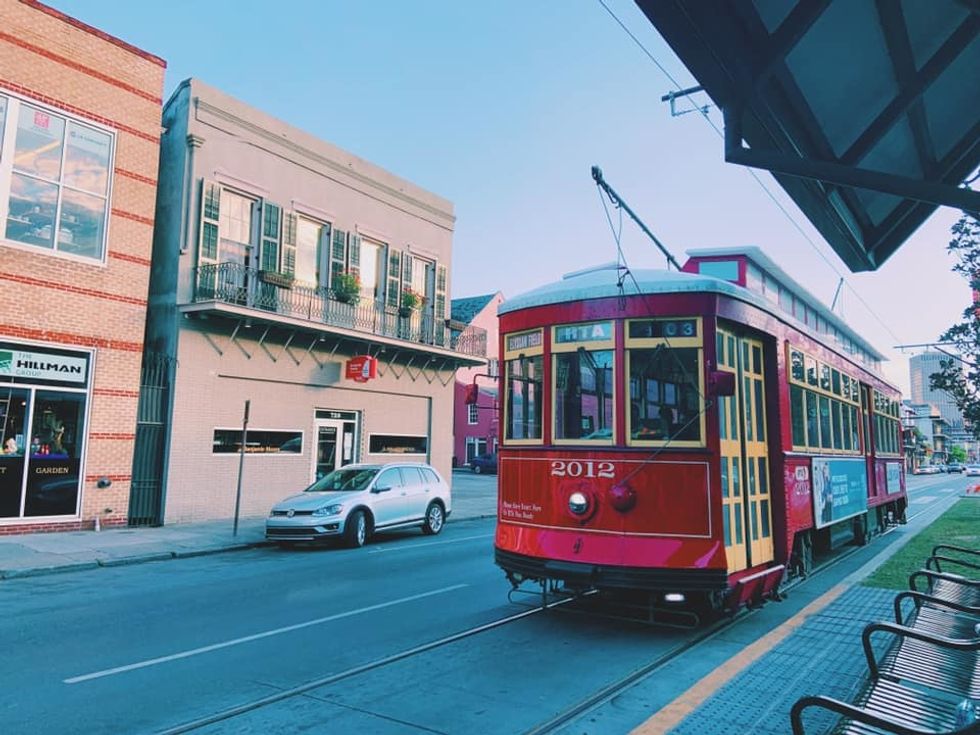
Street Car
Ashley Lanuza
Our trip forgoed rental cars because our housing was located close to our volunteer locations, and it seems that a situation of chance was actually a learning opportunity. On foot, we saw abandoned homes with broken roofs, damaged windows, and markings counting the dead and alive, remnants from Hurricane Katrina. We also noted blank spaces between homes that indicated where a home used to be. Public transportation gave us the opportunity to understand the racial and class makeup of the regions we were in, and unfortunately, how the difference in riders' makeup and the area we were in were correlated. Using private cars, such as Lyft or Uber, allowed us to receive lists of food recommendations preferred by locals, and conversations about the area that pushed us to be more critical.
Private cars can only keep you in your bubble, but using local fare to get around can elevate your trip and continue to contextualize your purpose for being there.
3. Give back to the community.
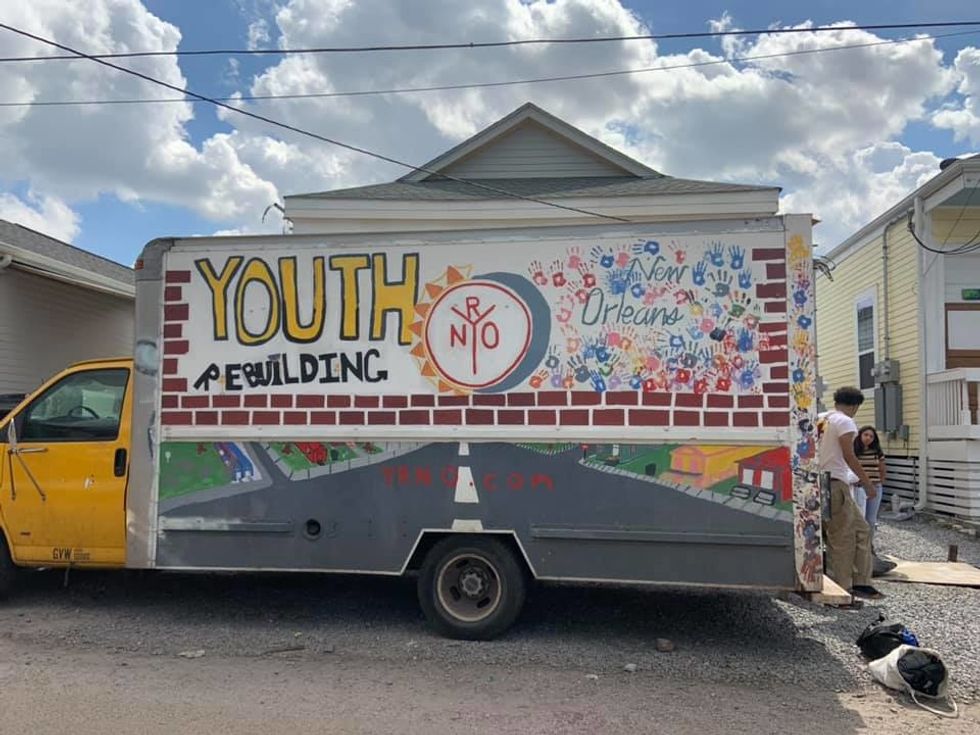
Youth Rebuilding New Orleans
Ashley Lanuza
Our main purpose in visiting New Orleans was to volunteer with local community organizations such as Youth Rebuilding New Orleans, Americorps' Rebuilding New Orleans, Grow Dat Youth Farm, and Animal Rescue New Orleans. Throughout the week, we physically labored to help these community-oriented organizations for a day or two. Giving to communities that were not our own just felt right after the injustices we had learned thus far. From this trip specifically, I felt in awe at the community's effort to rebuild without the direct help of the local government. The community truly stands with each other, despite all odds.
When volunteering, always keep in mind your position as a temporary, visiting volunteer. You may or may not be wanted in the space, and there are some experiences and challenges you'll never have to face when you're there for a day or a week. However, the privilege you're in to not have to deal with the community's reminders of destruction or trauma should inspire you to contribute something, even if you're not there for very long.
4. Share! Share! Share!
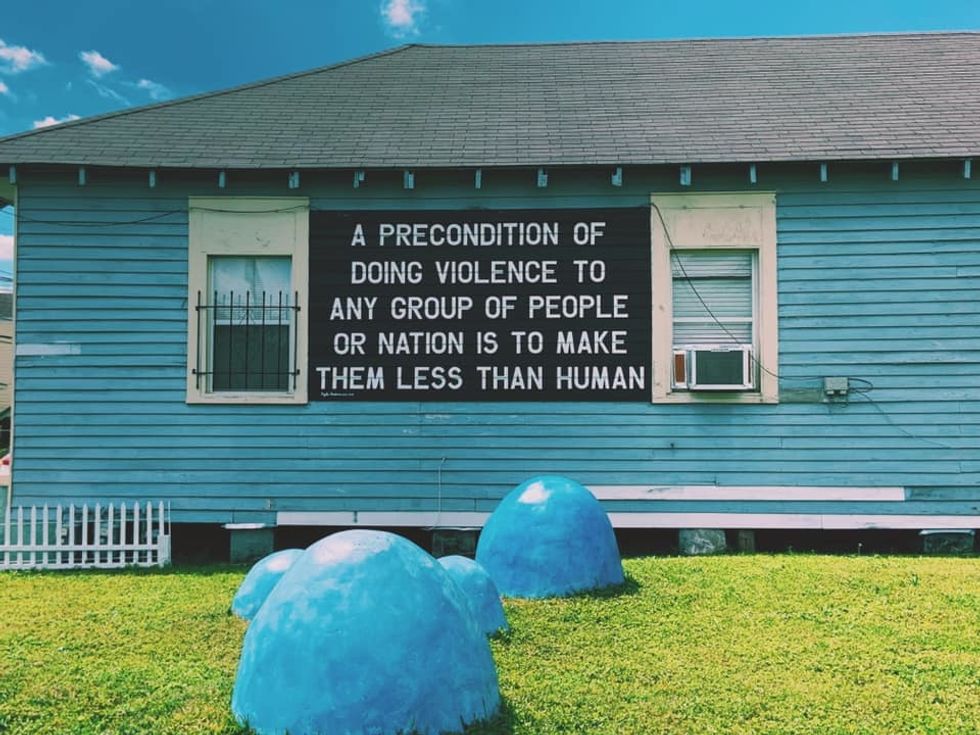
Words in NOLA
Ashley Lanuza
No one is a superhuman volunteer that can fix a community's problems and make it go away. Additionally, many of us don't have the resources to just start an organization to assist the community. However, especially in this digital age, we all have the power to share what we have learned. This Odyssey article is an example of sharing what I've seen and experienced. Social media posts, photos, blogs, and vlogs are another way to share experiences and information. More importantly, make sure that these bits of information highlight the community and the people (not yourself).
If you have the capability and platform to share these narratives, you have a responsibility to do so.
5. Imagine what you saw, but somewhere else.
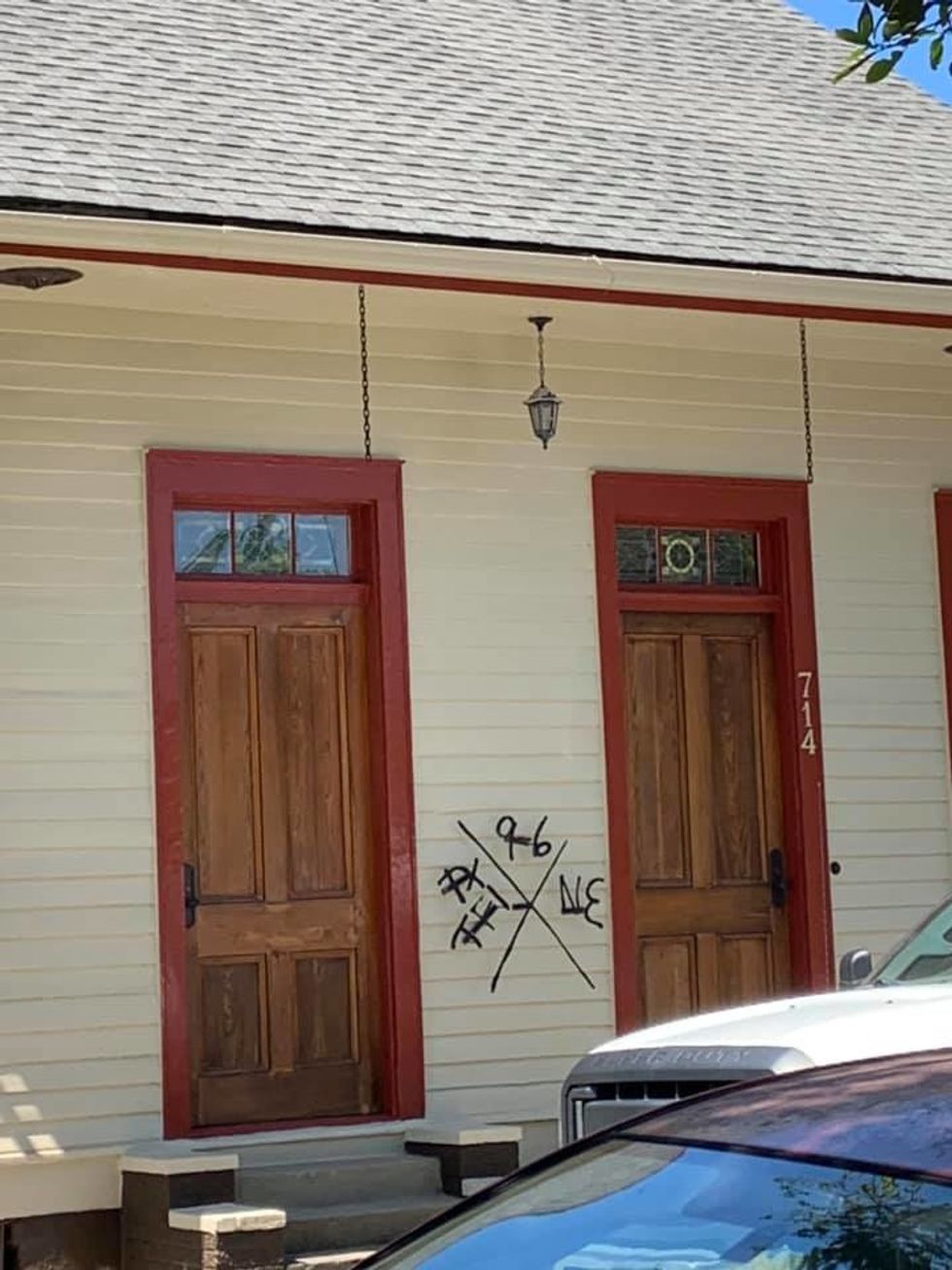
Home with remnants of Katrina markings
Ashley Lanuza
New Orleans is located in the prosperous United States, and though that does not invalidate the damage and trauma that occurred, it gives context to the magnitude of natural disasters in developing countries. If a natural disaster hit a location as hard as it did in the United States, imagine how even more damaging and traumatizing it has hit under-resourced countries and their people. There's an idea for your next travel destination (done with adequate research)!
During my trip, I was surprised, frustrated, and in awe of all that I learned and felt from the experience. It was an alternative type of spring break for sure, but I wouldn't have wanted to spend it any other way.
Huge thank you to Alternative Breaks at UCLA, Youth Rebuilding New Orleans, Americorps' Rebuilding New Orleans, Grow Dat Youth Farm, Tulane University, and Animal Rescue New Orleans.
And a huge thank you to my NOLA group for being a source of light, laughter, and continuous learning throughout the week. I love Y'all, CGs.
- Why You Should Go On An Alternative Spring Break (ASB) Trip ›
- The Ultimate Indie/Alternative Spring Break Playlist ›
- 10 Responses I Could Give When Asked About Spring Break ›
- My Alternative Spring Break: The Trip That Shed A New Light On 5 ... ›
- Alternative Spring Break: Rocking Roanoke For A Week ›
- Why Alternative Break Service Projects Have Something For Everyone ›
- UTK's Alternative Break Program Changed My Life ›
- I Took An Alternative Break In New Brunswick, And Finally Felt Like I ... ›
- 5 Reasons Why An Alternative Break Is The Best Choice For ... ›
- Alternative Breaks – at the Longhorn Center for Community ... - Austin ›
- Alternative Breaks » Wisconsin Union - Madison ›
- Alternative Breaks | Central Michigan University ›
- Alternative Breaks - Current Programs ... - Washington, DC ›
- Alternative break - Wikipedia ›
- Alternative Breaks | Public Service Center - Berkeley ›
- About CU Alternative Breaks | Volunteer Resource Center ... - Boulder ›
- Alternative Breaks - Get Involved Student Affairs - Florida ... ›
- Alternative Breaks ›
- Break Away - Alternative Breaks & Active Citizenship ›



















